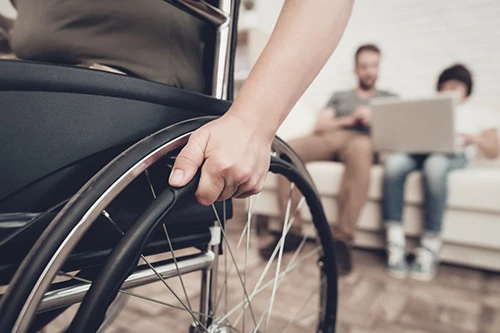Elder abuse in nursing homes can occur in many different ways. Sometimes, nursing home abuse is physical, but it can also be emotional, sexual, or neglectful. Contacting a nursing home abuse lawyer is vital if you know that a loved one is a victim. A Florida elderly abuse law firm will help you get the legal support that you need during these trying and difficult situations.
What Are the Types of Nursing Home Abuse?
Elderly abuse in a nursing home isn’t limited to just a few types of happenings and can occur due to several reasons. Reaching out to an abuse hotline in Florida is essential for reporting these issues.
Here are the various types of abuse and neglect in nursing homes:
Physical
Physical abuse in nursing homes may include hitting, pushing, slapping, and other forms of bodily harm. Bruises, fractures, or unexplained injuries often raise suspicions of physical abuse, and it’s essential to call an abuse hotline in Florida when this type of abuse occurs.
Emotional
Emotional or psychological abuse involves verbal assaults, threats, or other forms of mental cruelty. Emotional abuse commonly leaves deep psychological scars, making it crucial to monitor changes in an older adult’s demeanor or anxiety levels. Contacting an elderly abuse hotline in Florida is always recommended in situations involving emotional or psychological abuse.
Sexual
Sexual abuse is deemed to be any non-consensual sexual contact that happens with an elderly resident. The impact of sexual abuse is particularly devastating and can often go unreported due to the shame and stigma commonly associated with it.
Neglect
Nursing home neglect and abuse occurs when staff fail to provide adequate food, water, medication, or protection, leading to severe or worsened health issues. Signs of neglect often include bedsores, unclean conditions, and/or a general lack of responsiveness from staff when concerns are raised.
Financial
Exploiting an elderly resident’s finances through unauthorized use of their funds or stealing their money also constitutes abuse. Family members must regularly check financial statements and legal documents to guard against unauthorized transactions.
Factors Contributing to Nursing Home Abuse
Unfortunately, there are many reasons why nursing home abuse and neglect happen. Knowing how to report a nursing home for abuse is critical when dealing with such issues.
Here are some of the most common factors causing nursing home abuse:
Training Limitations
Nursing abuse often happens due to inadequate training. Staff may not be adequately trained to oversee the various needs of residents who are required to live in a nursing home.
Lack of Supervision and Accountability
Insufficient supervision and accountability can lead to staff feeling that they can act without consequences. Regular audits and monitoring by management helps to mitigate this risk.
Fraudulent Practices
Sometimes, fraudulent practices within the institution lead to various forms of senior abuse in Florida. Transparency and strict enforcement of ethical standards are necessary to avoid this issue.
Cultural and Societal Norms
Certain cultural and societal norms may also contribute to the mistreatment of older people. Education and training that emphasizes dignity and respect for older people may alter harmful norms and behaviors within a facility.
Legal Remedies and Recourse for Victims
A nursing home abuse lawyer can very well help you get the legal support needed. You will also have better peace of mind knowing that a lawyer for nursing home abuse is working on your behalf.
Overview of Legal Options for Victims of Nursing Home Abuse
Victims of nursing home abuse have quite a few legal options, including filing a complaint with state agencies such as Florida DCF, contacting elder abuse hotlines, or seeking civil lawsuits.
Importance of Seeking Legal Representation in Nursing Home Abuse Cases
Consulting a nursing home abuse lawyer is vital. These professionals understand the intricacies of the law and can offer the necessary guidance and support to ensure justice for the victim.
Civil and Criminal Consequences
Perpetrators of elder abuse can face both civil and criminal consequences. Civil actions can compensate the victim, while criminal charges can lead to fines and imprisonment for the perpetrator. Society needs to continue to hold abusers accountable as well as enforce stringent penalties to deter future offenses.



